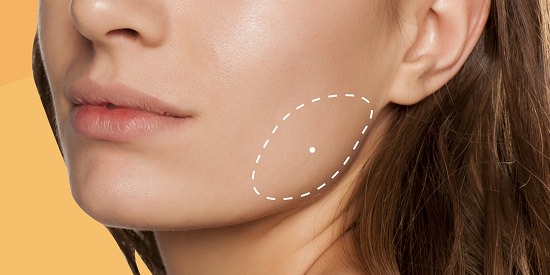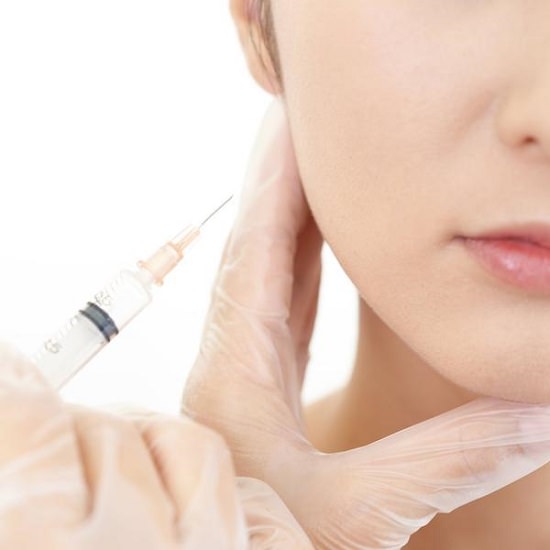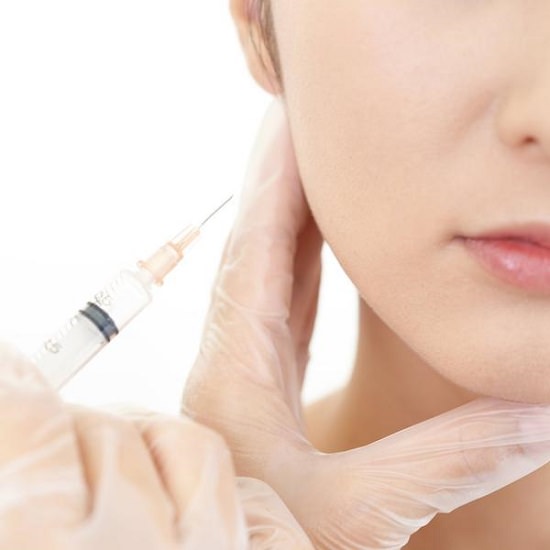Thinking of getting a jaw botox done? Read about the potential side effects of jaw botox among other relevant information.
What is Jaw Botox?
Botox is a neuromodulator that induces flaccid paralysis by inhibiting the synthesis of acetylcholine release when injected into the target muscle. Masseter, a rectangular-shaped muscle present on both sides of the jaw and is also one of the major facial muscles that help in chewing. This muscle provides volume and fullness to the sides of the face. A sharp, square jawline is distinctly masculine, while women mostly prefer a softer oval-shaped look giving a graceful appearance.
Proper clinical examination of the lower part of the face and the size of the masseter muscle determines the dose and frequency of botox injections.
By relaxing this facial muscle with Botox, there is a noticeable size reduction. This creates a more tapered and slim appearance of the jawline. A perfect “V-Line,” which is called Masseter botox or jawline Botox is thus formed.
It usually takes 4-6 weeks for the slimming effect to be apparent and can last for about 4-6 months. Besides jawline slimming, masseter botox also helps treat TMJ Disorders, Bruxism, Jaw ache and tension, Habitual Subluxation of the temporomandibular joint, Headaches, Migraines, and Lock-Jaw.
Botulinum Toxin is emerging as an effective treatment option in bruxism cases. Injecting in the masseter and temporalis muscles played a significant role in relieving the bruxism phenomenon.
Side Effects of Jaw Botox
The commonly reported side effects of Jaw Botox are:
- Localized swelling
- Bruising
- Hematoma
- Dizziness
- Headache
- Paresthesia
- Pain
- Chewing Difficulty
- Facial Asymmetry
- Drooling
- Lack of Response
- Worsened Jowls or Sagging
- Paradoxical Bulging
- Changes in Facial Expression
- Abnormal Movement of the Temporomandibular Joint
- Depressed Cheek
- Depressed Temporal Fossa
- Xerostomia and Neuropraxia.
Besides the above-mentioned side effects, the general risk factors of Botox treatment are headaches, respiratory infection, eyelid drooping, and nausea, erythema, and muscle weakness. These symptoms should subside within the first week of treatment. If not, consult with a certified dermatologist.
Avoid intake of Aspirin and other NSAID group of medications 4-7 days before receiving Botox treatment to minimize bruising.
Another drawback to Botox® injection for TMJ treatments is that there is a chance of developing antibodies. This makes TMJ treatments less and less effective over time. Using the least effective dose possible over long intervals of time can hinder resistance.
Why Avoid Botox?
Do not undergo Botox treatment if you belong to any of the following categories:
- Pregnant Women
- Lactating mother
- Allergic to cow’s milk protein
- Have any neuromuscular disorders like Myasthenia Gravis
- Your profession is reliant on facial expression
- Immunocompromised patients
- Have keloid scarring
- Have any dysmorphic disorder
Advisory
Suppose you are keen on improving the overall appearance of your facial contour. In that case, consult with a board-certified plastic surgeon or a dermatologist as your first step to a beautifully chiseled jawline. This helps in avoiding the risk of complications. Your surgeon will conduct a complete facial analysis and provide you with non-invasive and surgical options to attain your goal.



